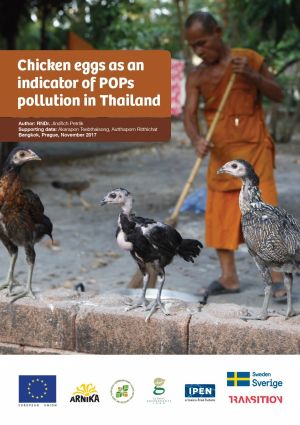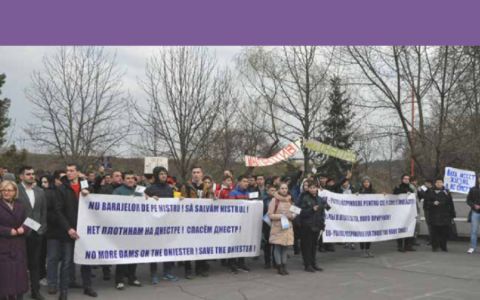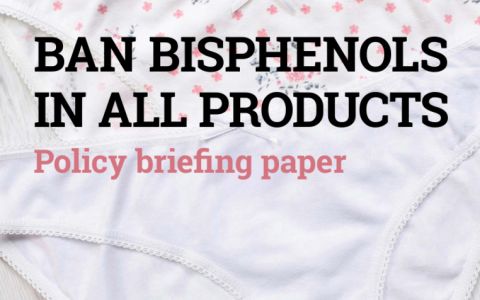Report based on chemical analyses of free range chicken eggs collected by EARTH and Arnika in Thailand in 2015 - 2016
Bangkok / Prague
Pages: 32
Language: English
Author: Jindřich Petrlík
Supporting data: Akarapon Teebthaisong, Autthaporn Ritthichat
DOI: 10.13140/RG.2.2.28948.60801
This study demonstrates some emerging problems of pollution by persistent organic pollutants (POPs) in relation to the growing industry in Thailand. Some sites with a large concentration of industrial facilities, although there were many limitations, create a broad and exhaustive picture of POPs in free- range chicken eggs in such a large country.
Chicken eggs are an important part of the human diet. The eggs from localities polluted by POPs can significantly burden the body, as demonstrated in this report, although eggs are a less common in food for the Thai population, in comparison with some other countries. The solution is not to discourage the public from eating chicken eggs or punishing the chicken farmers, but to prevent further contamination of the food chain at certain hotspots by addressing the issues of POPs being released into the environment.
We used chicken eggs, as they are a proven indicator of potential contamination within the food chain. We didn’t sample meat but results of some other studies demonstrated simultaneous contamination of chicken eggs and meat from contaminated sites.
This study has discovered serious contamination within food chain by various POPs in Samut Sakhon, with a dense concentration of secondary metal production from artisanal recycling facilities, which quite often burn waste, including e-wastes, for reclamation of metals. These facilities are common sources of unintentionally produced POPs (e.g. dioxins or dioxin-like PCBs) as well as brominated flame retardants (BFRs).
Acknowledgement
The field survey, sampling and analysis were conducted as a part of the project ‘‘Increasing Transparency in Industrial Pollution Management through Citizen Science” funded by European Union and co-financed by Czech Ministry of Foreign Affairs, Swedish Government, IPEN, and Global Greengrants Fund.







